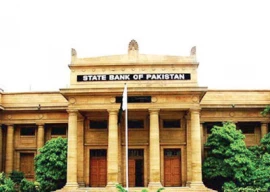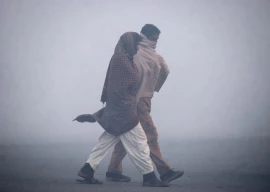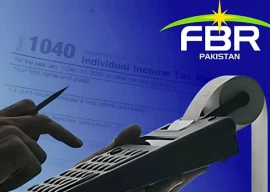
A roundtable discussion on the "Business Case for Decarbonisation in Pakistan", hosted by the Sustainable Development Policy Institute (SDPI), has emphasised the critical need for industrial decarbonisation to address the nation's economic, energy and environmental crises that is possible through emerging technologies and financial instruments accessible to developing nations.
The event, moderated by Saleha Qureshi, Lead of Pakistan Industrial Decarbonisation Initiative at SDPI, brought together experts from various sectors to explore viable solutions to mitigate Pakistan's vulnerability to climate change while boosting its economic resilience, said a press release.
In his opening remarks, SDPI energy expert Dr Khalid Waleed pointed out that Pakistan's economy was trapped in a cycle of low productivity, trade deficit and unsustainable energy costs. He stressed the urgency of shifting from conventional approaches to sustainable solutions and also highlighted the potential risks posed by international regulatory mechanisms like the Carbon Border Adjustment Mechanism (CBAM). Pakistan's textile sector, in particular, faces significant challenges emerging from such global policies, which could undermine competitiveness unless the industry adapts to decarbonisation.
Pakistan State Oil (PSO) Deputy General Manager ESG Farrukh Ahmad shared insights into how his organisation was leveraging decarbonisation as an opportunity rather than a challenge.
PSO, which holds half of the country's oil storage, is actively working on energy efficiency, renewable energy initiatives and the development of electric vehicle charging infrastructure to reduce carbon footprint. He noted PSO's commitment to leading the energy sector towards a cleaner future. Private Financing Advisory Network (PFAN) former NTE Hammad Bashir emphasised that decarbonisation should not be viewed as mere "greenwashing" but as a genuine business case.
He acknowledged the challenges faced by Pakistan's industries but highlighted the importance of creating tailor-made solutions that align with both environmental goals and economic realities.
Rt Hon Benjamin James Matthew Williamson underscored the challenge of striking a balance between legislative efforts and incentives in driving sustainability and decarbonisation.
According to him, achieving these goals requires capacity building at multiple levels as well as integration of strategies on a broader scale. This approach unites sectors like agriculture with diverse datasets across different tiers of emissions scopes.
He highlighted that Pakistan had a significant opportunity to become a leader in industrial decarbonisation. By putting in place necessary infrastructure and focusing on education, the country can position itself at the forefront of this critical global movement. He believes these efforts will pave the way for Pakistan's economy to follow an upward trajectory, supporting sustainable growth and innovation.
South Pole Associate Director Policy and Strategy Marianne Tan talked about the importance of carbon markets in decarbonisation process and proposed a win-win solution where industries would reduce emissions and trade carbon credits.
She advocated for transition from coal to renewable energy, citing global examples such as the Rockefeller Foundation's coal-to-clean initiative.
SDPI visiting fellow Dr Hina Aslam, while addressing broader implications of decarbonisation, stressed that even developed countries were grappling with the challenge of transitioning to low-carbon industries.
She cited sectors like steel and cement as critical areas where reductions in emissions could be achieved through innovative production processes.
SDPI Head of Energy Unit Ubaidur Rehman underlined the critical role the carbon capture, utilisation and storage (CCUS) technologies played in decarbonisation agenda and their implications for Pakistan.


1726117332-0/Megan-Thee-Stallion-(1)1726117332-0-165x106.webp)





















COMMENTS
Comments are moderated and generally will be posted if they are on-topic and not abusive.
For more information, please see our Comments FAQ